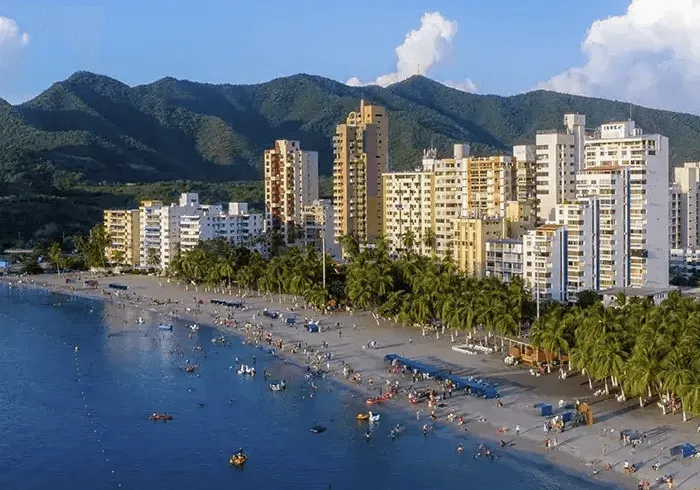
Moving to Colombia: A Guide for Expats and Digital Nomads
Colombia has become an increasingly popular destination for expats and digital nomads. With the rise of remote work, the country offers an appealing mix of affordable living, diverse landscapes, and a vibrant culture. Whether you're drawn to the Caribbean beaches, the bustling cities, or the scenic Andes mountains, Colombia presents an exciting opportunity for relocation.
While the country may not offer as many visa options as the EU or Schengen Zone, Colombia provides a range of visas that allow foreigners to stay either short-term or permanently. However, moving to Colombia requires careful planning, from handling paperwork to understanding local regulations. This guide will help you navigate the essentials for a smooth transition.
Step 1: Prepare Your Documents
Before relocating to Colombia, it's crucial to understand the visa process and gather the necessary paperwork.
Types of Visas in Colombia
The Colombian government offers several visa options depending on the purpose of your stay:
Tourist Visa: Allows a short-term visit to explore Colombia, typically for up to 90 days.
Temporary Visa: Covers work, business, student, and partnership visas.
Resident Visa: For those planning to live permanently in Colombia.
Visitor Visa - Business: Designed for entrepreneurs engaging in business activities.
Visitor Visa - TP-7: Suitable for retirees and independent workers with proof of stable income.
Visa Sponsorship in Colombia
If you’re not married to a Colombian citizen or don’t own a business in the country, you may need a sponsor to secure a work visa. This is usually an employer who can verify your role and provide legal backing for your stay.
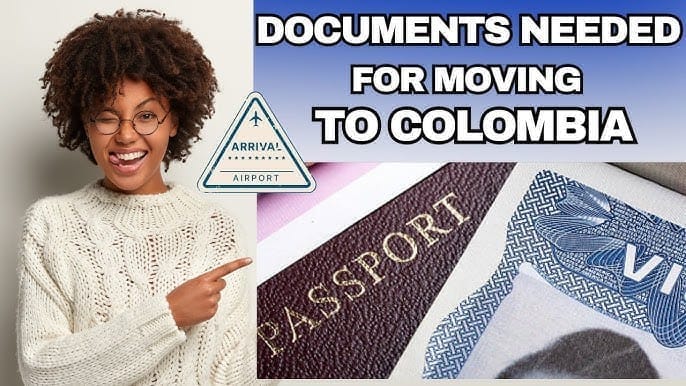
Essential Document Checklist
To avoid delays, ensure you have the following documents ready when applying for a Colombian visa:
Valid Passport – Must be valid for at least six months beyond your planned stay and have at least two blank pages.
Passport-Sized Photos – Typically 35mm by 45mm, and taken within the last six months.
Visa Application Form – Download, complete, and sign the correct form based on your visa type.
Proof of Outbound Travel – A flight or bus ticket showing your departure date from Colombia.
Health Insurance – You’ll need proof of coverage for at least $70,000 during your stay.
Accommodation Details – This could be a rental agreement, hotel booking, or a letter from a host.
Proof of Employment or Business – For work visas, you must provide an official job offer or employment contract.
Proof of Financial Stability – Bank statements or proof of income to show you can support yourself while in Colombia.
Marriage and Birth Certificates – If moving with family, these documents are needed for dependent visas.
Authenticating and Translating Your Documents
Colombian authorities may require you to authenticate certain documents before they are accepted. Here’s what you need to know:
Legalization and Apostille
If your home country is part of the Apostille Convention, you must get an apostille stamp on your documents.
If your country is not part of the Apostille Convention, you may need to have your documents authenticated by the nearest Colombian consulate or embassy.
Spanish Translation Requirements
Official documents, such as birth and marriage certificates, may need to be translated into Spanish.
It’s recommended to use a certified translator to ensure accuracy and compliance with Colombian legal standards.
Step 2: Manage Your Finances
Colombia’s affordable cost of living makes it an attractive destination for expats and digital nomads. However, costs can vary significantly depending on your lifestyle and the city you choose. Whether you’re planning to rent or buy property, use public transport, or dine out frequently, understanding the financial landscape will help you plan your budget effectively.
Cost of Living in Colombia
Here’s what you can expect in terms of monthly expenses:
Renting:
A one-bedroom apartment in city centers costs around 1,500,000 COP ($390) per month.
Outside city centers, rent drops to 1,000,000 COP ($260).
Buying Property:
Real estate varies by location—cities like Bogotá and Medellín tend to be more expensive.
Additional costs include notary fees, property registration, and legal paperwork.
Food & Dining:
Groceries are affordable, especially when buying local products.
Eating out at a mid-range restaurant costs approximately 60,000 COP ($15) for two people.
Transportation:
Public transport is cheap, with monthly passes in cities like Cali, Barranquilla, and Cartagena costing around 80,000 COP ($20).
Taxis and rideshare apps are affordable alternatives.
Utilities:
Monthly bills (electricity, water, internet) range from 150,000 to 300,000 COP ($40-$80) depending on usage.
Visa Sponsorship in Colombia
If you’re not married to a Colombian citizen or don’t own a business in the country, you may need a sponsor to secure a work visa. This is usually an employer who can verify your role and provide legal backing for your stay.

Step 3: Arrange Housing and Accommodation
Finding the right place to live is crucial for a comfortable and enjoyable life in Colombia. Whether you choose to rent or buy, your accommodation will shape your lifestyle, daily routine, and integration into the local community.
Renting vs. Buying in Colombia
Colombia offers a diverse housing market, from modern apartments in vibrant city centers to spacious homes in quieter rural areas. Before making a decision, consider your long-term plans, budget, and lifestyle preferences.
Renting a Home
Security Deposits: Typically one month’s rent.
Lease Terms: One-year contracts are common, but short-term options (like Airbnb) are available.
Furnished vs. Unfurnished: Furnished apartments are popular among expats and digital nomads.
Rental Costs: Prices vary depending on location, with major cities being more expensive.
Buying Property
Real Estate Investment: Property prices in Colombia have been rising, making buying a good long-term investment.
Legal & Language Barriers: Foreigners can buy property, but navigating local regulations and paperwork may require a lawyer or translator.
Additional Costs: Expect to pay for notary fees, registration, and taxes when purchasing a home.
Understanding Rental Agreements
Before signing a lease, make sure you clarify:
Rental Price & Payment Terms – Is the rent fixed, or can it increase?
Security Deposit & Upfront Costs – Typically one month’s rent.
Lease Length & Renewal Terms – Most contracts last 12 months, with renewal options.
Maintenance & Repairs – Who is responsible: you or the landlord?
Pets & Property Modifications – Are pets allowed? Can you repaint or renovate?
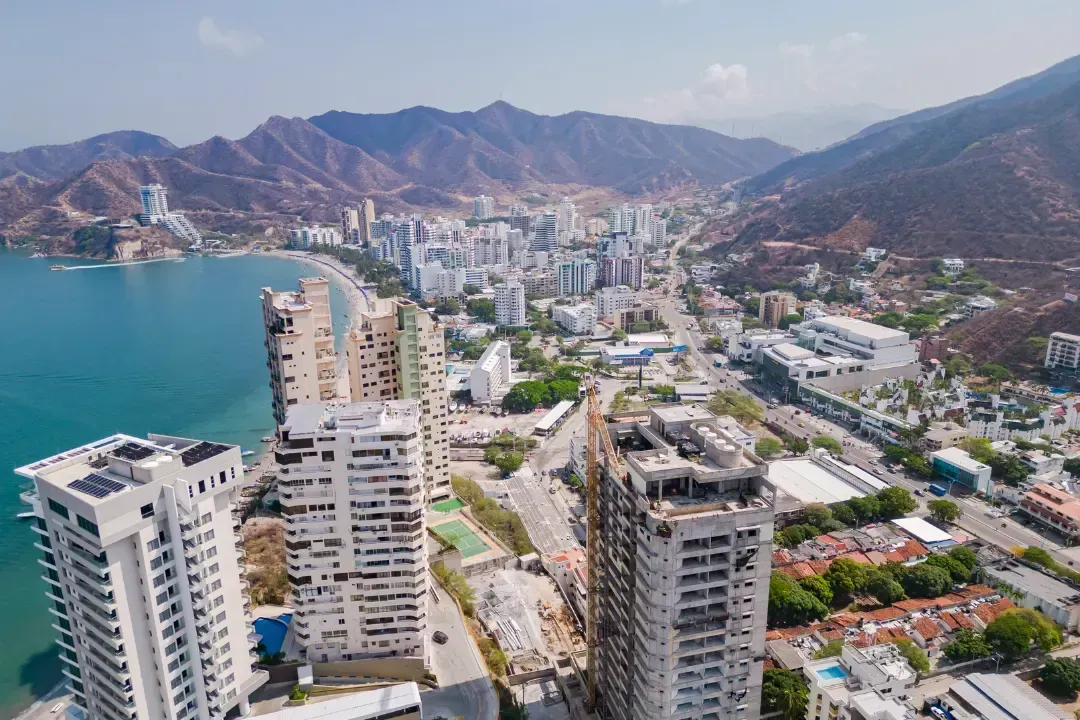
Step 4: Explore Career Opportunities and Working Arrangements
Finding work in Colombia can be challenging due to high competition, but opportunities exist for those with in-demand skills or the flexibility to work remotely. Whether you’re seeking a local job, freelance gigs, or remote work, it’s important to understand the job market, work culture, and employment trends in Colombia.
Job Market Overview
Colombia's economy is steadily growing, with certain industries experiencing higher demand for skilled professionals. Understanding current industry trends will help you target the right job opportunities.
Sectors with High Demand
Technology & IT 💻 – Software development, cybersecurity, and data analysis roles are expanding.
Education & Language Teaching 📚 – There’s a strong demand for English teachers and corporate trainers.
Hospitality & Tourism 🏨 – Especially in Medellín, Cartagena, and Bogotá due to growing tourism.
Finance & Business Development 📈 – Multinational companies hire expats in corporate roles.
Healthcare & Engineering ⚙️ – Skilled professionals are needed in specialized industries.
Where to Find Jobs
LinkedIn – Search for international and local job listings.
Indeed Colombia – Offers a mix of local and international job postings.
Elempleo.com & Computrabajo – Popular Colombian job boards.
Glassdoor & Expat Groups – Good for English-speaking job opportunities.
Work Culture in Colombia
Understanding workplace norms is essential for career success in Colombia.
Personal Relationships Matter – Face-to-face interactions are highly valued; networking is key!
Work Hours & Breaks – A standard workday runs 8 AM - 5 PM, often with a two-hour lunch break.
Professional Etiquette – Meetings may take longer than expected, emphasizing relationship-building over efficiency.
Punctuality vs. Flexibility – While punctuality is appreciated, there’s often a relaxed approach to deadlines.
Remote Work & Freelancing
With Colombia’s excellent internet infrastructure in major cities, many digital nomads and remote workers choose to live here while working for international companies.
Coworking Spaces – Cities like Santa Marta, Medellín, and Bogotá have growing coworking communities.
Freelancing – Websites like Upwork, Fiverr, and Workana offer global opportunities for independent professionals.
Digital Nomad Visa – Colombia now offers a visa for remote workers, making it easier to stay long-term.
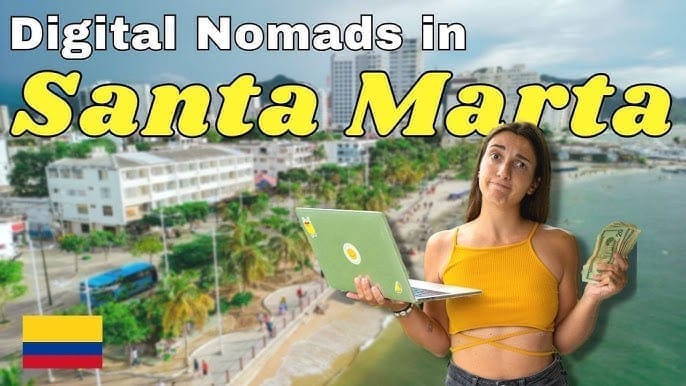
Step 5: Healthcare & Education
Healthcare in Colombia
Colombia offers high-quality healthcare, with public and private options in major cities like Bogotá, Medellín, and Santa Marta.
Public healthcare is affordable but may have long wait times.
Private insurance ensures faster access to specialists and treatments.
Santa Marta has reliable private clinics, though complex procedures may require travel to Medellín or Bogotá.
Healthcare in Colombia
Public & private schools are available, with international schools in cities like Bogotá, Medellín, and Santa Marta.
Education is compulsory until age 15.
Homeschooling is an option but less common.
Many expats in Santa Marta choose private healthcare and international schools for better services and English-language options.
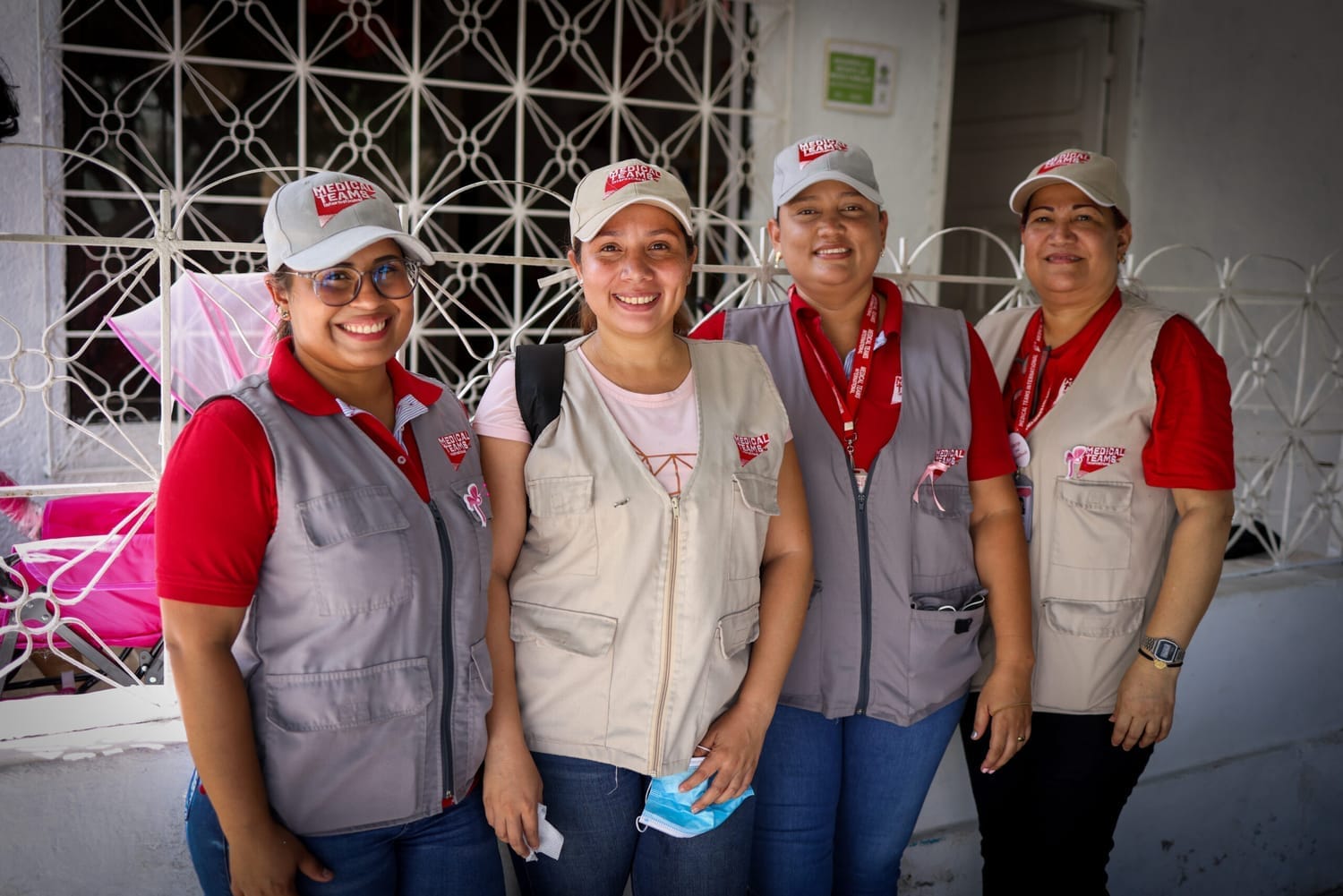
Step 6: Stay Safe in Colombia
While Colombia is a welcoming country, petty crime like pickpocketing can occur in crowded areas and nightlife spots. Stay vigilant, avoid displaying valuables, and use common sense when exploring.
Emergency number: Dial 123 for police, medical, or fire assistance.
Embassy contacts: Keep your country's embassy details handy.
Most tourist areas and major cities are well-policed, and ongoing safety initiatives continue to improve the overall security for expats and locals. With awareness and precautions, you can enjoy a safe experience in Colombia!
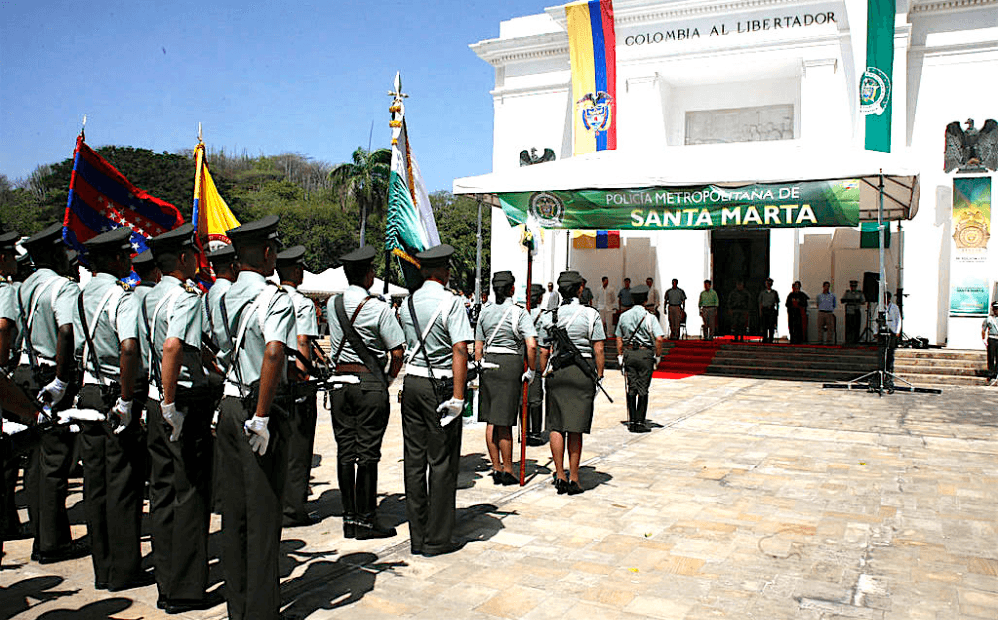
Step 7: Immerse Yourself in Colombian Culture
Embracing Colombia’s vibrant culture will enhance your expat experience and help you feel at home.
Cultural Diversity: While influenced by neighbors like Brazil, Venezuela, and Ecuador, Colombians have a distinct national identity.
Dress Code: Urban areas favor smart attire, while coastal cities like Santa Marta are more relaxed.
Café Culture: As a top coffee producer, Colombia offers must-try local brews in charming cafés.
Music & Dance: Enjoy cumbia, vallenato, and salsa, integral to social life across the country.
Engaging with local traditions, language, and people will make your transition smoother and enrich your experience in Colombia! 🇨🇴✨
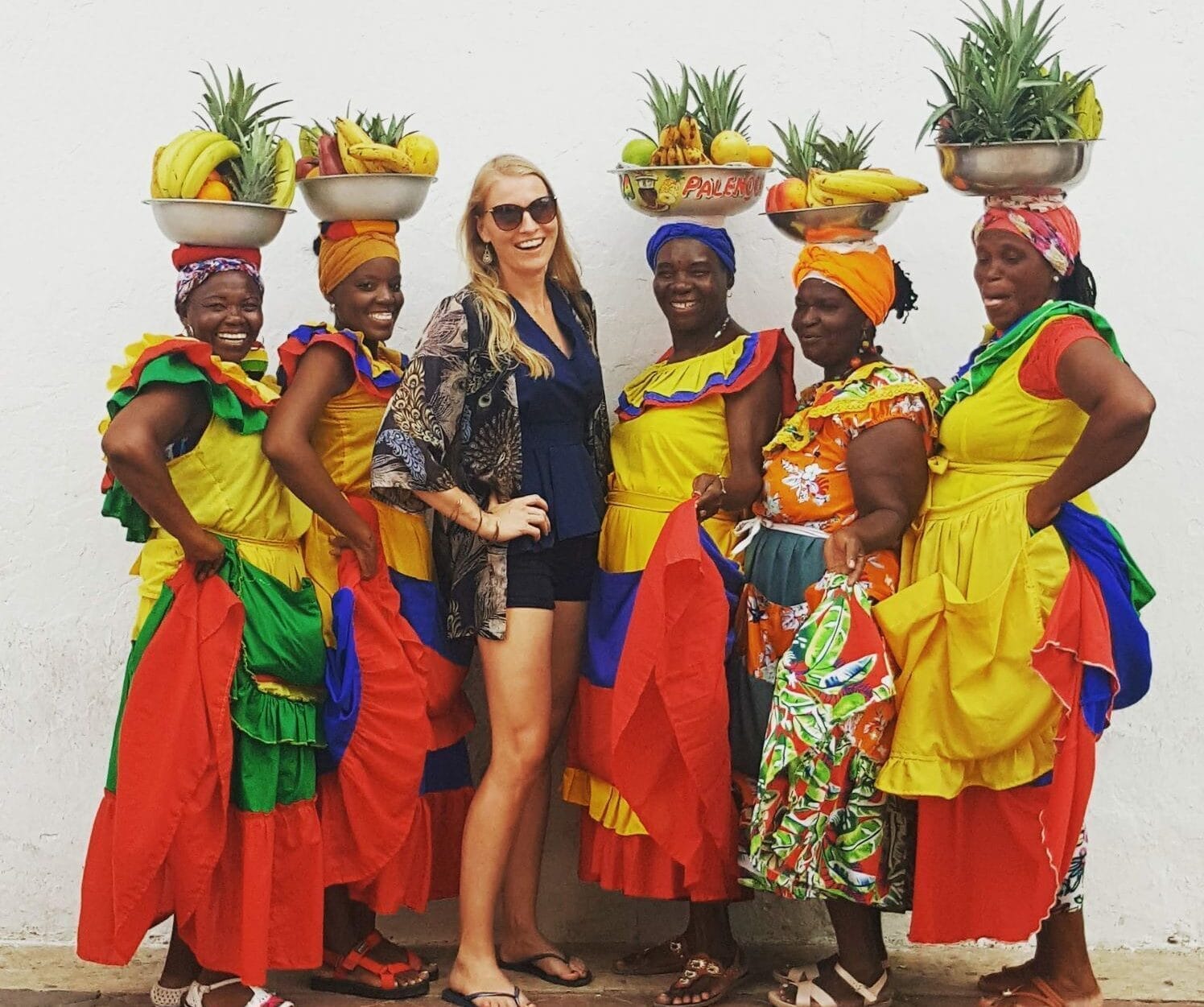
Discover a Warm Welcome in Colombia
From the Andean mountains to the Caribbean coast of Santa Marta, Colombia offers an affordable cost of living, diverse job opportunities, strong social security, and a rich cultural experience—making it an ideal destination for expats and digital nomads.
With careful planning and research, relocating can be a smooth process. For additional support, platforms like Rotisha's World can assist with visa applications and insurance options, making your move even easier.
Need Expert Guidance?
Feeling overwhelmed by the paperwork or unsure about the next steps? Let us help!
Our team of experts specializes in guiding entrepreneurs through Colombia’s business landscape. From legal structures to compliance, we’ve got you covered.
Contact us today for personalized advice and support!
